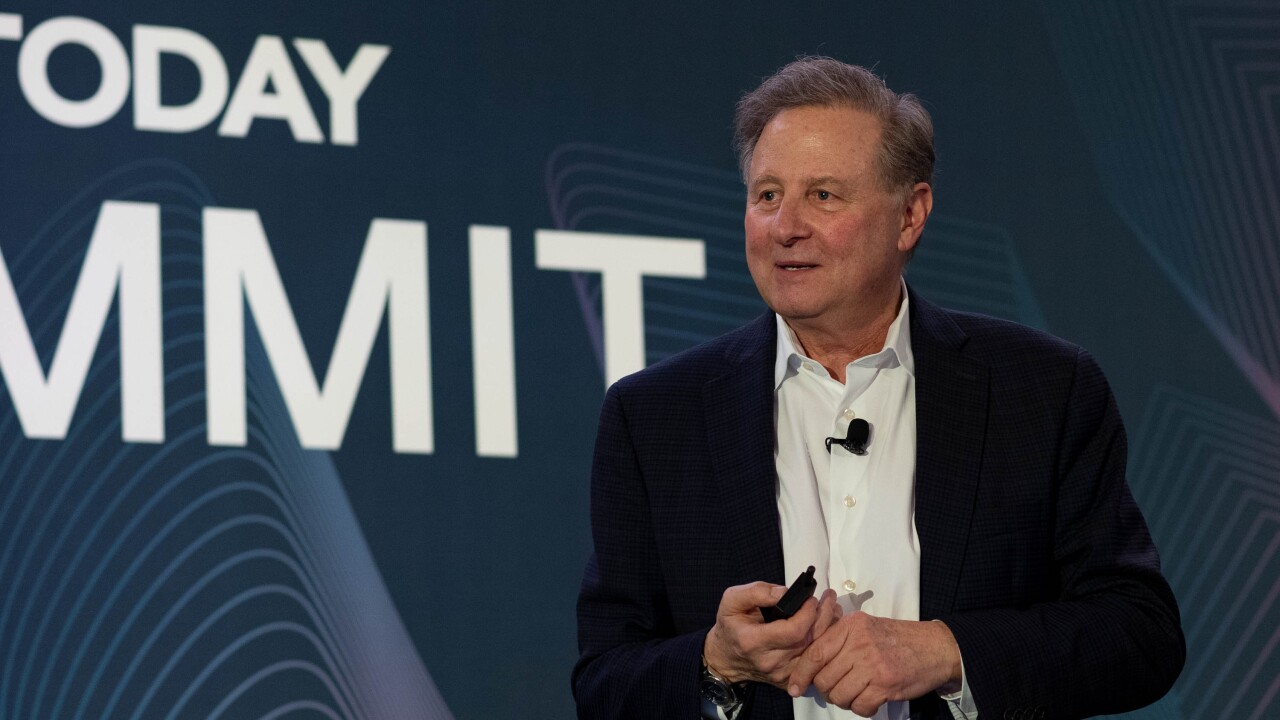The CPA brand remains “incredibly strong,” according to American Institute of CPAs president and CEO Barry Melancon, but the profession still faces challenges.
In a keynote address on “The State of the Profession” at the 2014 Practitioners Symposium and Tech+ Conference, Melancon and AICPA chair Bill Balhoff updated attendees on a variety of issues, initiatives, and regulatory and governmental developments that will affect the profession going forward.
Among the good news was the high reputation of the profession, and the value clients put on it. Melancon reported survey data showing that, among other things, 91 percent of business decision-makers are very or somewhat satisfied with the work of their internal CPAs, while 87 percent were very or somewhat satisfied with the work of their external CPAs. At the same time, 75 percent of them said that they would be more confident in work done by CPA than in work done by a non-CPA accountant.
That confidence will be an asset to CPAs in facing some of the many issues that Melancon outlined, including the continuing globalization of the business. By 2017, for instance, 80 percent of small and midsized enterprises will have global operations, he said, versus 67 percent now. “Even the smallest of companies are competing much more aggressively in international markets,” Melancon explained -- and they will expect their accountants to be able to help them as they expand internationally.
Regulatory and government challenges
Among the political and governmental developments that Melancon highlighted were:
- The Republicans will likely take control of the Senate in November -- but will probably lose it again in 2016, creating a climate of uncertainty in which little is likely to be done.
- Patent trolls continue to target small businesses and CPAs. The AICPA has been at the forefront of a coalition to fight this, but while a solution has passed the House, it’s being held up in the Senate.
- The DATA Act will make reporting in XBRL mandatory for the government in 2016.
- CPAs should keep an eye out for a forthcoming Supreme Court decision in the Halliburton case on how classes are certified for class-action lawsuits.
- Audit rotation “is happening all around the world,” Melancon said, and its international implementation could have a cascade effect in the U.S. (“Some in the profession think audit rotation is a good idea,” he quipped, “as long as it’s someone else’s client who’s required to rotate.”)
- “On tax reform, we’ve seen a lot of rhetoric, but not a lot of action,” Melancon explained, though he expects a number of the currently outstanding tax extenders to be resolved.
- Following the Loving ruling that invalidated the IRS’s mandatory tax preparer credentialling regime, the agency is seeking to create a voluntary regime. “Congress is not likely to give the IRS the authority to do anything right now,” Melancon explained, adding that the institute objects to the voluntary regime, and would rather see the IRS “beef up” the PTIN system to fight fraud.
Audit and attest, and more
Institute chair Balhoff discussed a number of developments in different areas, but particularly in audit and attest, and in AICPA services:
- He described the changes that the Public Company Accounting Oversight Board is proposing to audit reports, including requiring engagement partners to sign them.
- The board is also concerned about the quality of audits of broker-dealers, and is extending its inspections in that area.
- The AICPA has changed the definition of “attest” in the Uniform Accountancy Act to bring it up to date with changing needs and practices in the market.
- While individual mobility has been well-established, firm mobility across state lines remains an issue, and Balhoff warned that firms may inadvertently be practicing improperly across state lines.
- He described the progress of the AICPA’s Financial Reporting Framework for SMEs, and the work CPAs and the institute have been doing to educate clients and statement users like banks on its value.
- He praised the work of the new Private Company Council: “They’re very engaged, and they’re asking the right questions. We’ve never before had such an engaged [Financial Accounting Standards Board].
- He noted that the institute’s ethics code has been restructured to make it more user-friendly and accessible -- though the rules themselves have not changed much.
Challenges going forward
In closing, Melancon noted a few more issues, ranging from the specific -- like the booming demand for requests for third-party verifications, on which the institute has issued some guidance -- to the broad, such as the affect that technology has had on a number of issues, such as the future of continuing education.
In particular, he warned CPAs about the growing gap between the number of accounting graduates and the number of people taking the CPA Exam, and about the sweeping demographic changes that make it crucial for the profession to become more diverse. “If we as a profession don’t look like the future of entrepreneurial capital,” he explained, “we won’t be able to service that capital.”




